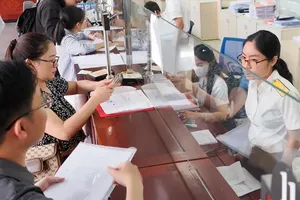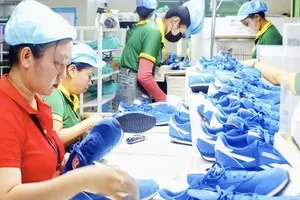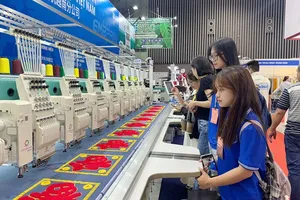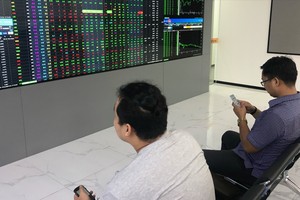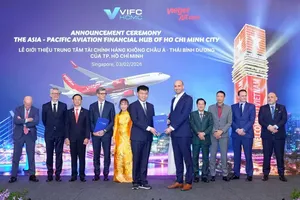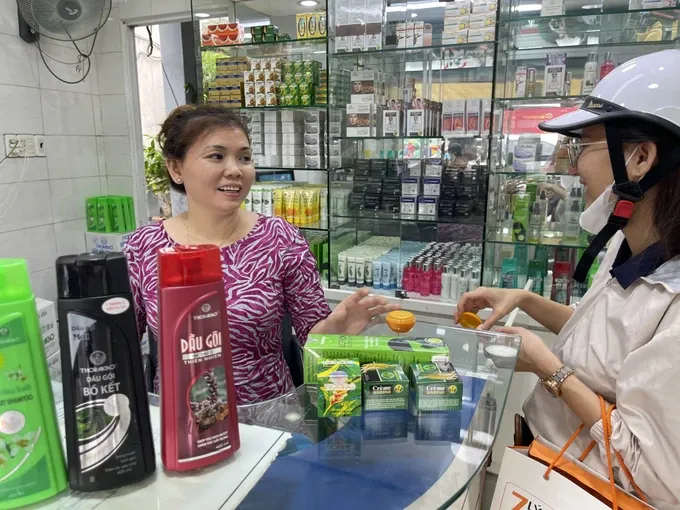
In his literary work, “Give Me a Ticket to Childhood”, author Nguyen Nhat Anh nostalgically recounts, “In those days, my culinary predilections were singularly confined to instant noodles.” Within the instant noodle market of the 1970s through the 1990s, the ‘Two-Shrimp’ brand, characterized by its distinctive packaging, was ubiquitous. Consequently, the generic style ‘shrimp noodles’ persists in contemporary sayings, irrespective of brand affiliation.
However, the provenance of the ‘Two-Shrimp’ motif is frequently overlooked. It originated with Thien Huong Co., founded by the Chinese-origin entrepreneur Tran Thanh, and its Vi Huong instant noodle product. Thien Huong Co. also achieved notable success with its Vi Huong To seasoned salt, launched in 1964.
Colusa Food Processing Enterprise (established in 1972, subsequently merged with Miliket) also adopted the ‘Two-Shrimp’ imagery. While Miliket instant noodles have receded from their 1980s-1990s peak, their simple kraft paper packaging evokes nostalgia, bridging contemporary consumption with bygone eras.
Thien Huong Co., headquartered in HCMC’s District 12, remains a prominent food manufacturer, offering a diversified product portfolio encompassing instant noodles, seasoning, and convenience foods, distributed domestically and internationally.
In the cosmetics sector, Thorakao stands as a paragon of brand resilience. Numerous other brands, including Bich Chi Flour, Nam Duong Soy Sauce, Dong Tam Tiles, and Bach Tuyet Cotton, have also endured periods of market fluctuation, ultimately achieving sustained market presence.
In 1957, Lan Hao established a cosmetic processing enterprise, specializing in natural ingredient-based beauty products. By 1961, the enterprise was formally incorporated as Lan Hao Co., marketing the Thorakao product line, characterized by quality and affordability. The nascent competitive landscape facilitated the brand’s rapid market penetration.
The early 1990s witnessed an influx of international cosmetics brands, posing a significant competitive challenge to domestic manufacturers. Thorakao, while engaging in contract manufacturing, steadfastly maintained its brand identity, rejecting a US$30 million acquisition offer.
Emerging from this period of adversity, Thorakao expanded its product portfolio, emphasizing natural formulations such as turmeric cream, grapefruit blossom shampoo, and hair care essences, achieving both domestic and international market penetration.
The resurgence of Co Ba Soap, founded in 1932 by Truong Van Ben, a Chinese-origin entrepreneur, presents a compelling narrative. Initially competing against French-dominated imports, Co Ba Soap achieved national brand status through product customization and effective marketing.
Post-1975, Co Ba Soap experienced market obsolescence. Recent efforts to revitalize the brand, incorporating traditional imagery and modernized formulations, reflect a renewed market orientation.
The preservation and development of traditional brands represent both a challenge and a mandate. Behind these brands are entrepreneurs who exhibit resilience, vision, and determination.
CEO Mai Kieu Lien of Vinamilk has been instrumental in the company’s evolution, avoiding import-centric strategies in favor of a vertically integrated value chain – from farm to table. This strategic approach has enabled Vinamilk to achieve a significant regional presence, operating in over 50 countries.
CEO Nguyen Thi Thu of Aki Food, representing a new generation of entrepreneurs, aspires to establish Vietnamese agricultural products as a global consumer staple. Employing a quality-centric approach, Aki Food has achieved market penetration in Asia and is expanding into Europe.
In the cosmetics sector, CEO Nguyen Kim Thoa of Saigon Cosmetics Corporation (SCC) views international competition as an opportunity for brand revitalization. Emphasizing emotional resonance and product safety, with its ‘Miss Saigon’ perfume bottle, SCC has achieved international market penetration while maintaining its brand heritage.
Former CEO Nguyen Hoang Ngan of Binh Minh Plastics advocates that while the plastics industry may seem to offer limited avenues for innovation, adaptation is imperative for sustained viability. They resolved to attain technological sovereignty and market dominance, particularly within the domestic sphere. It is a demanding yet ultimately rewarding trajectory.
Binh Minh Plastics has committed substantial investment to automation and the development of products tailored to Vietnam’s climatic conditions and infrastructural landscape, while upholding international standards. Consequently, the brand has not only secured a significant domestic market share but has also expanded its export footprint across numerous regional markets.
Although the brand has since witnessed increased foreign corporate investment, Binh Minh Plastics’ distinctive identity remains a trusted commodity among Vietnamese consumers.
These entrepreneurs, acting as custodians of their respective brands, exemplify managerial acumen, perseverance, and a commitment to Vietnamese values. Their efforts have enabled traditional Vietnamese products to achieve international recognition.









